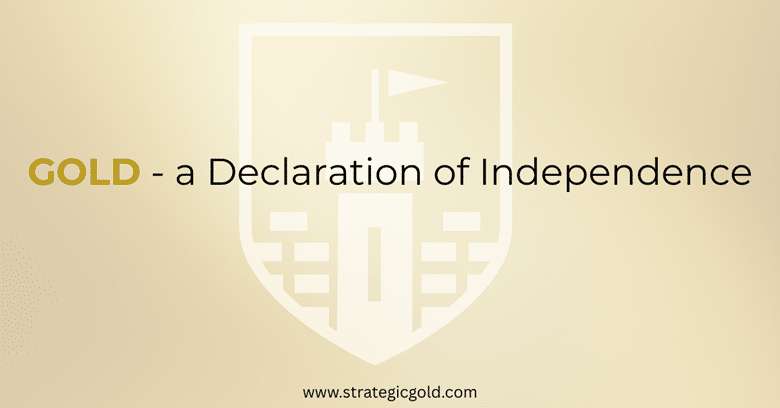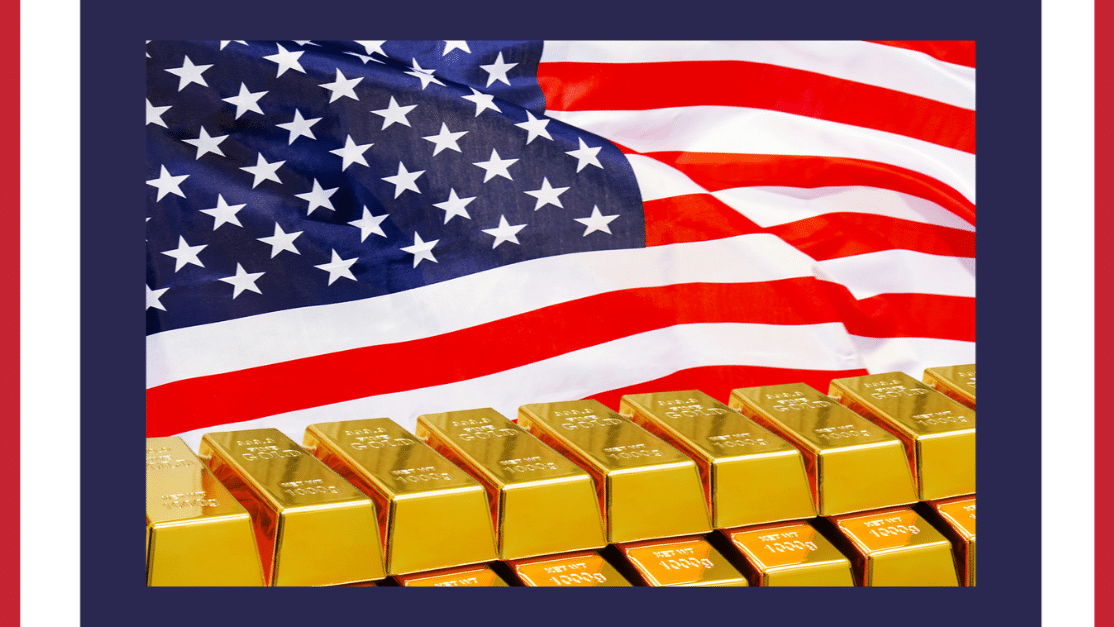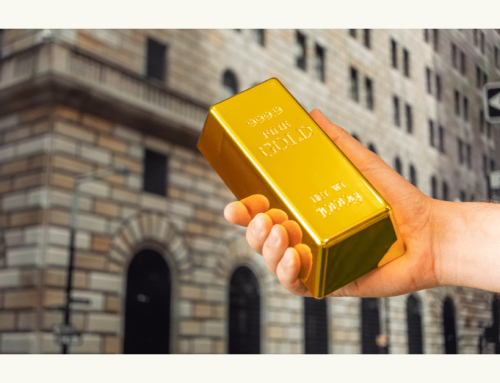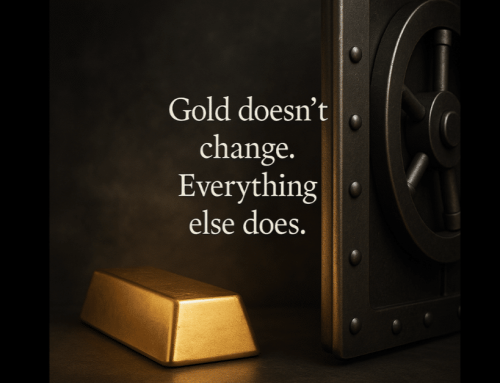This week, Americans celebrate the Fourth of July—an annual tribute to independence, liberty, and self-determination. But beyond the fireworks and flags, it’s worth asking: what underpins true freedom in today’s world? Gold and Freedom go hand in hand.
For centuries, gold played a quiet but powerful role in preserving individual sovereignty. It was never just a shiny metal or an investment—it was an enduring form of wealth that transcended borders, regimes, and banking systems. Today, in a financial world built on ever-expanding credit and central control, physical gold may be more relevant than ever.
If You Need Permission, You Don’t Own It
The modern monetary system is built on trust—trust in central banks, trust in the solvency of institutions, trust in digital balances stored in servers we don’t control. Every financial asset today—bonds, stocks, bank accounts, even fiat currency—is a claim on someone else’s promise to pay.
But promises break. Systems fail. And when they do, those holding paper claims must wait—and hope—for someone else to deliver.
Physical gold requires no permission, no performance, no counterparties. It is wealth in its most autonomous form. When you hold it, you don’t rely on anyone else to honor a contract or stabilize a system. You already own the asset, fully and finally.
That distinction matters—because only assets you own outright can truly support your freedom.
The Illusion of Abundance, The Reality of Scarcity
Gold is scarce. Its supply grows slowly, predictably, and with immense effort. By contrast, paper claims—dollars, derivatives, and digital credits—can be created with a keystroke. This imbalance has allowed modern economies to balloon on layers of leverage, giving rise to an illusion of wealth.
But illusions have a shelf life.
When confidence erodes, and the gap between real assets and financial claims becomes visible, capital seeks safety—not in promises, but in presence. That’s why, historically, in times of upheaval, gold doesn’t just survive—it reasserts its role as the foundation of lasting value.
Freedom from the System Itself
Perhaps the most overlooked feature of physical gold is that it exists outside the system. It doesn’t depend on favorable policy. It isn’t debased by inflation. It’s not trapped behind capital controls. It is the opposite of a bail-in risk.
In that way, gold is not just a hedge against inflation. It’s a hedge against control.
Those who hold gold—especially outside the financial system—maintain an option that others don’t. They possess a form of liquidity, security, and sovereignty that cannot be printed, tracked, or denied.
It’s not just smart wealth planning.
It’s structural freedom.
The Quiet Return of Real Money
While many in the West speculate on gold through ETFs, mining stocks, or derivatives, others—especially in the East—have been quietly accumulating physical gold. Not as a trade, but as a reserve.
A real wealth reserve.
Central banks, sovereign entities, and some of the world’s wealthiest families understand that gold’s value isn’t defined by its price alone. Its value lies in what it represents: permanence, independence, and the power to opt out.
And that is what makes gold different from any other asset class. Not its volatility. Not its shine.
But its salience—the natural magnetism of gold as the universal benchmark of lasting value—makes it the focal point of real wealth when trust fades and systems shift.

Gold – A Declaration of Independence
Gold is not a bet – It’s a Declaration of Independence
In the spirit of independence, it’s worth remembering that gold isn’t an investment in someone else’s business plan. It’s a personal declaration: that some portion of your wealth will not be diluted, confiscated, or defaulted on.
Gold is not a vote of no confidence.
It’s a vote of self-confidence.
In uncertain times, when even the foundations of our monetary systems seem less stable, the decision to hold physical gold is not just prudent.
It’s profoundly free. It’s not just wealth—it’s independence you can hold in your hand.
This article is for informational and educational purposes only and should not be construed as investment advice. The views expressed are those of the author and do not constitute a recommendation to buy or sell any asset. Always consult with a qualified financial advisor before making investment decisions.






